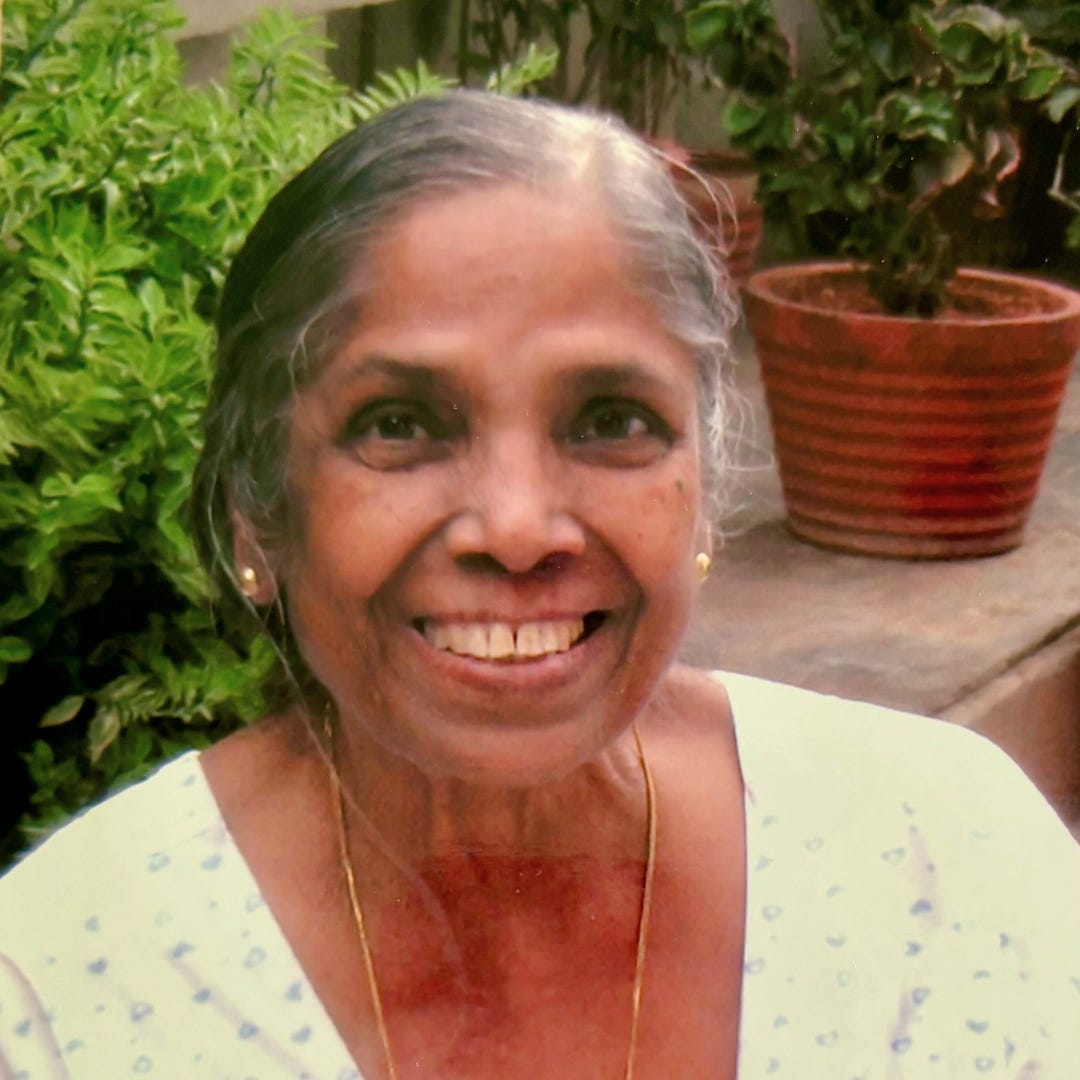ANCH’S MAGIC SUNGLASSES CASE
“At 22, I left India for the U.S. At that age, you don’t realize that aunts will die and you won’t have the chance to ask for something they wore or loved.”
Anch was Dad’s second sister, his favorite and mine too. It’s safe to say so now—he and all his siblings are dead. Anch died, of cancer, in 2006. I heard she suffered terribly—the more so, it seemed to me, because she didn't know why she wasn't getting better; no one told her it was cancer, terminal, palliative care her only recourse. My mother said Dad would visit Anch and sit in a chair by her bed, her shriveled hand in his, the room silent and smelling of death’s arrival.
This was unfathomable, though not because Anch was in our hometown, Hyderabad, while I was 8,000 miles away in New York City and didn’t know the details of her illness. I simply couldn’t imagine Anch and Dad not talking, not laughing. Anch’s laughter was magical. Loud, joyful, irresistible. She threw her head back and her whole face became the laugh. She always laughed. She always talked.
Things Anch and I talked about: hair oil, dowry deaths, books she or I had recently read, the best varieties of chudwa, the feminist movement in India (of which she was a leader), dust, auto-rickshaw fares, family members (Dad in particular, whom Anch loved as I did, even when they temporarily stopped speaking over a money dispute), the dubious merits of marriage, color theory, my ambitions.
She always kept a pot of water boiled with cumin on her dining table—her cure for everything from dry skin to heartbreak. She wore starched cotton sarees when polyester was the rage. Though we were a staunchly Catholic family, to everyone’s disapproval she married a Hindu and stood by him to the end. She was a professor of philosophy who taught women’s studies before it was called that. She had a clairvoyance she didn’t discuss. She didn’t like cooking. She liked to eat.
We lived in different cities most of my life, and when she visited—no matter if I was 7, 12, 16 or 20—we’d stay up all night talking, our talk punctuated by tea, chudwa and our laughter. Then, at 22, I left India for the U.S. When you move continents at that age, you don’t realize that you ought to cram into your two measly suitcases things you want to hold onto, that your parents’ house will be sold and your childhood treasures scattered, that aunts will die and their belongings will be distributed and you won’t have the chance to ask for something they wore or loved, that in fact you won’t even know to think about asking.
But. The last time I saw Anch, I dragged her to the All-India Exhibition, a massive fair of handicrafts from across the country. I think that’s where she bought me the pair of Star Trek–looking glasses that came in this green and black case. I’ve never worn the glasses. The case is what I care about. I keep it on my nightstand. It’s nothing fancy. A hard-shelled container that opens to a velvety interior. But wait. Before you snap it shut, roll the top back, then back even more, more than you think is possible. And look! The green bands are suddenly purple. Magic, like Anch.
—Bix Gabriel

Bix Gabriel is a writer, teacher of creative writing at Bucknell University and editor at The Offing magazine. She was born in Hyderabad and lives in Queens.
For a different reading experience, The Keepthings’ stories can also be read in their entirety on Instagram @TheKeepthings.
Have a story to share? Please see the complete submission guidelines, including photo guidelines, at TheKeepthings.com.





This is lovely. I often think of this quotation from the poet Stevie Smith: "People think because I never married, I know nothing about the emotions. When I am dead you must put them right. I loved my aunt."
Beautiful descriptions of simple things. Thank you!